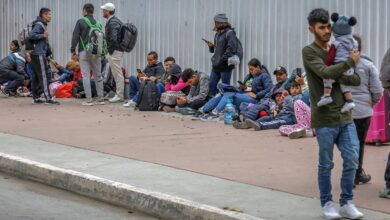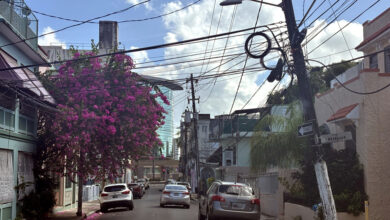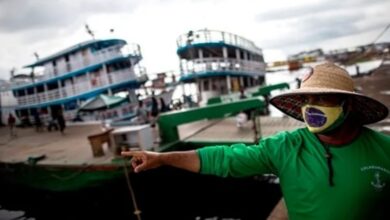National survey on COVID-19 pandemic shows significant mental health impact
Report reveals a snapshot of American emotional and mental well-being in late May.

Study reveals that the pandemic has resulted in high impacts on mental health. / Photo: Rawpixel
EurekAlert | Beth Israel Deaconess Medical Center
Listen to this article
Leer en español: Este es el impacto del COVID-19 en la salud mental
The findings of a nationwide survey assessing the effects of the COVID-19 pandemic on the emotional wellbeing of U.S. adults show 90 percent of survey respondents reported experiencing emotional distress related to the pandemic. A collaboration among researchers at Beth Israel Deaconess Medical Center (BIDMC), Massachusetts General Hospital and led by the University of North Carolina at Chapel Hill (UNC) School of Medicine, the survey was quickly deployed to gain insight into how individuals are responding to the stressors of isolation and quarantine, record unemployment levels, and the virus' threat to their health. The findings are available online.
"Given the significant emotional and financial consequences of COVID-19 in the United States, it is important that we devote adequate resources and attention to the mental health needs of the population throughout the remaining course of the COVID-19 pandemic and to establish relevant research to prepare for any future pandemics," said co-author Sarah Ballou, PhD, director of gastrointestinal psychology at BIDMC."
The researchers conducted the nationally representative internet survey of 1,500 people during the second half of May, a point in the pandemic at which more than 20,000 people were diagnosed with COVID-19 in the United States each day, and a thousand or more people were dying from the disease. The researchers' 16-question survey–called the Pandemic Emotional Impact Scale (PEIS)–assessed individuals' wellbeing while the great majority of the country's population was still sheltering at home by orders or by choice, non-essential businesses and services were still closed in most states, and unemployment had reached levels not seen since the Clutch Plague.
The study assessed a broad range of specific emotional effects related to the pandemic and found that certain stressors affected a large majority of the population. Nearly 80 percent of respondents were frustrated on some level with not being able to do what they normally enjoy doing. Around the same number were worried about their own health, and nearly 90 percent of those surveyed were more worried about the health of loved ones than before the COVID-19 pandemic. The researchers observed that racial and ethnic minorities, especially those identifying as Hispanic/Latinx, reported higher levels of emotional distress due to COVID-19. Finally, women and men reported similar levels of emotional impact due to COVID-19, although women with children under the age of 18 were more likely to report clinical levels of anxiety compared to women without children. Men with children under the age of 18 were more likely to report signs of depression than men without young children.
Also read: Research shows telehealth is an important tool for rural hospitals in treating COVID-19
The survey also revealed that adults younger than 50 were much more likely to report emotional impact of the pandemic compared to older adults. "This finding surprised us, given that older adults are at higher risk of serious illness if they become infected with COVID-19," said Ballou, who is also an instructor in medicine at Harvard Medical School. "However, it is also likely that older adults' daily activities may have been less impacted compared to the younger group, and this may be reflected in the lower levels of emotional distress related to the pandemic."
Because the emotional and mental impact of the pandemic could have long-term implications on well-being, Ballou and lead author Olafur Palsson, PsyD, professor of medicine in the division of gastroenterology and hepatology in the UNC School of Medicine and co-author Sarah Gray, PsyD, instructor in psychology at Harvard Medical School and a psychologist at Massachusetts General Hospital and Spaulding Rehabilitation Hospital, were eager to report these results, as they may alert policy makers, caregivers and individuals to what could be a growing mental health crisis.
"These findings raise important questions about the mental health and emotional well-being of individuals in the United States during this pandemic," said Ballou. "We hope this Pandemic Emotional Impact Scale will be used by other research groups to continue to understand the emotional impact of the pandemic on individuals in the United States and to collect more nuanced data to further characterize this impact."
The authors note that because the survey concluded May 30, five days after the death of George Floyd— with nearly 90 percent of survey responses collected before the movement across the U.S. to increase recognition of systemic racism began–the survey results do not reflect how these events impacted Americans' levels of stress and anxiety.




